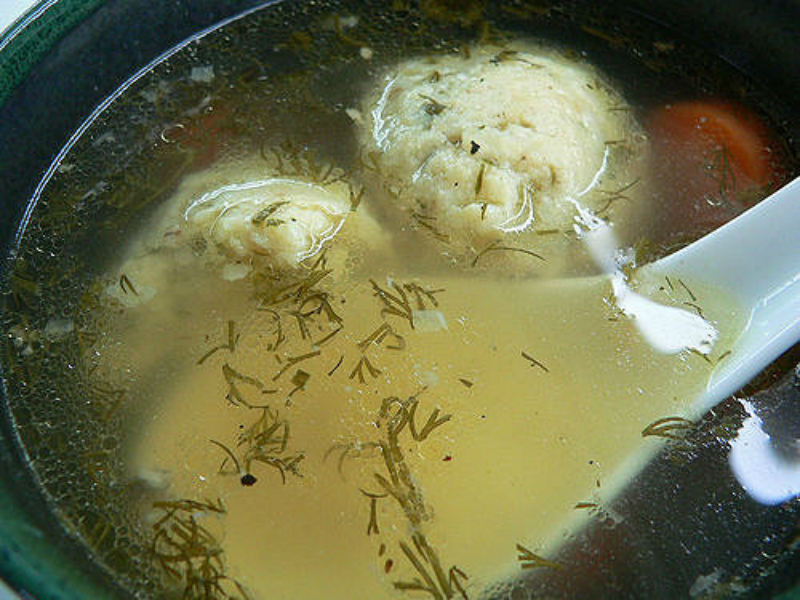I was recently at Baycrest for pastoral care purposes. That’s a fancy way of saying I was visiting with people who are sick or elderly. The elevator taking me back down to the lobby stopped at one of the floors. The doors opened and an older woman entered. She was conversing in a foreign tongue to an ancient-looking woman she had obviously been visiting. Feeling inquisitive, I asked her what language she was speaking. “Italian,” she replied.
The woman looked up at me and, in a heavy accented voice, inquired, “and, you?” I told her that I speak English. That was clearly not the response she was looking for. The woman followed up by asking, “you Jewish?” She was either very astute or noticed the big kippah on my head. I nodded in the affirmative.
My new acquaintance then declared in her best broken-English, “Jews, Italians; same – family, food.” I smiled politely. The elevator reached the lobby, the doors opened and we both went our separate ways.
There is definitely some truth to my elevator mate’s observation. Food and family definitely feature prominently in Jewish life. A Shabbat or holiday meal often includes relatives and can be a veritable banquet. Like me, you may have smiled inwardly when a non-Jewish acquaintance grumbles about all the time, energy and expense involved in preparing Thanksgiving or Christmas dinner. We Jews have that experience every week. Also, what’s shul without a kiddush? And, let’s not even begin to talk about the lavish feasts associated with weddings, bar and bat mitzvahs and other simchas.
But there has to be more to one’s Judaism than kishka and babaganoush. A Jewish life that’s based solely upon a single feature, like food or family, is not sustainable. The non-Jewish partner of a secular Jewish guy proudly told me that her potential future mother-in-law is teaching her how to “cook Jewish.” That this is the total extent of her
initiation into our religion is unfortunate. We haven’t survived as a people for 3,500 years just because we share recipes.
Ideally what makes a food Jewish is consuming it as a means to an end rather than an end in itself. Like the saying goes, we should eat to live and not vice versa. Food can be elevated when we have it on Shabbat, a Jewish holiday or a simcha. If we really want to get deep, we can turn to Kabbalah where it is says that when we eat something we release the holy sparks that are contained within it. And, it’s not referring to heartburn.
READ:VALE: THE SUPER BOWL OF TALMUD STUDY
I would like to share something I learned from one of my teachers. This rabbi was asked about the Torah’s view on cannabis use. This was decades before it was legalized in Canada. Setting aside health and legal issues, he gave a very interesting answer. He explained that ancient Jewish scholars elevated alcohol by associating it with many rituals – Kiddush, Havdalah, brit milahs, weddings, etc. The rabbi then pointed out that since there is no such religious context for marijuana, the likelihood for abuse is too great. It’s one thing to elevate your mind; it’s another thing to twist it for no good purpose.
Eating can be looked at the same way. It should definitely be an enjoyable experience. But, a “Jewish” food shouldn’t be the beginning and end of our Yiddishkeit. Rather it should be seen as something that sustains us physically and enhances us spiritually.









